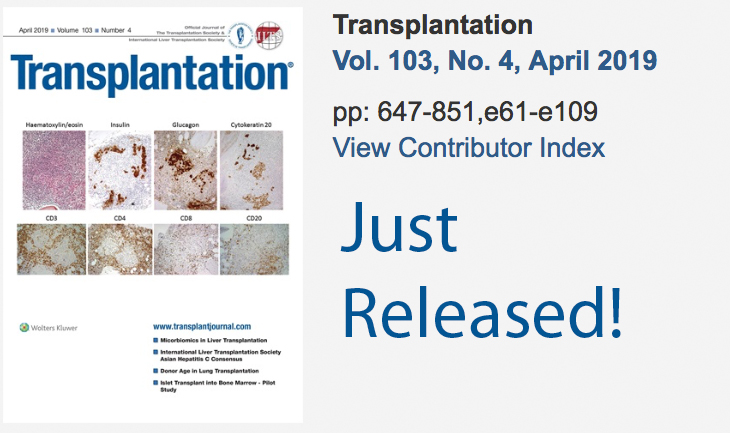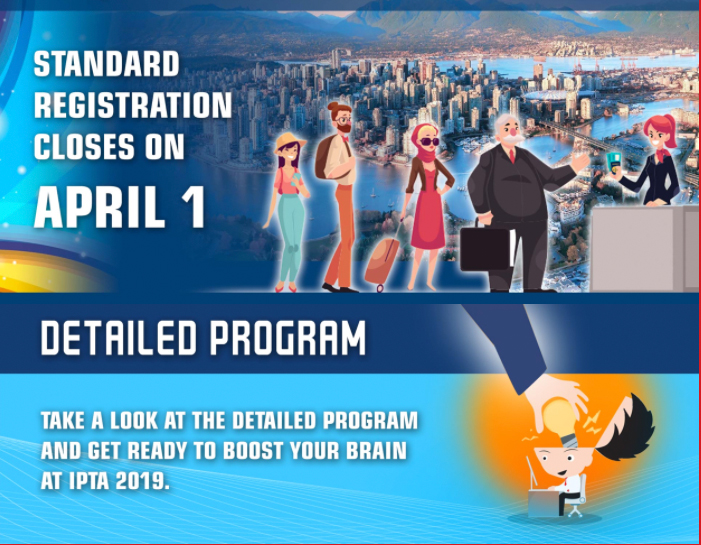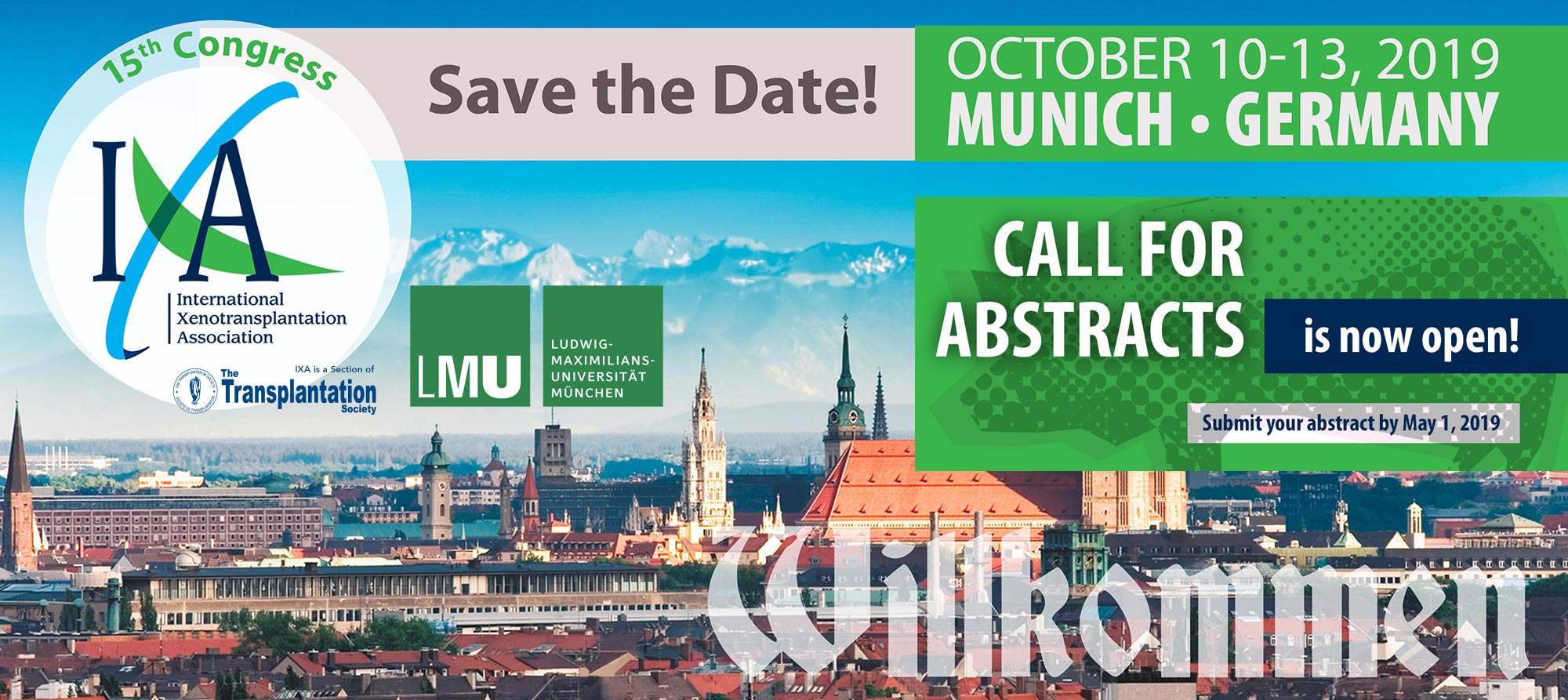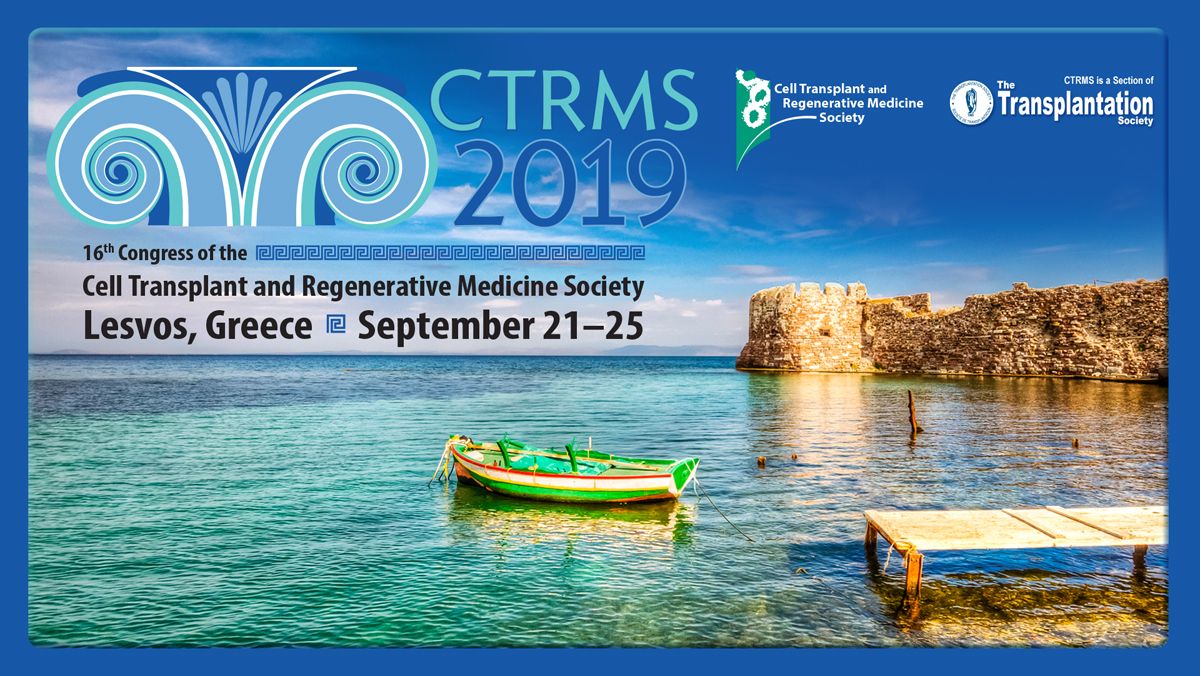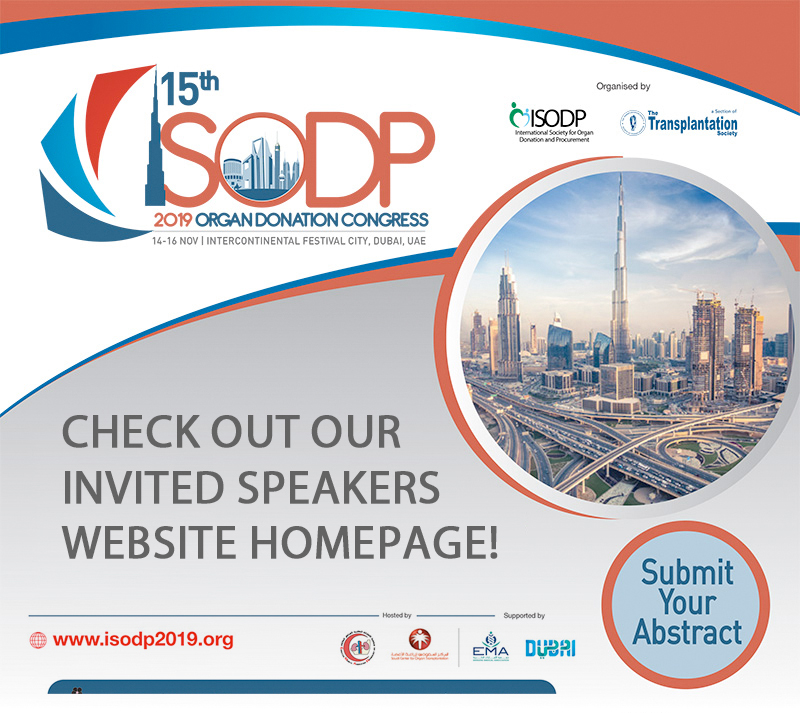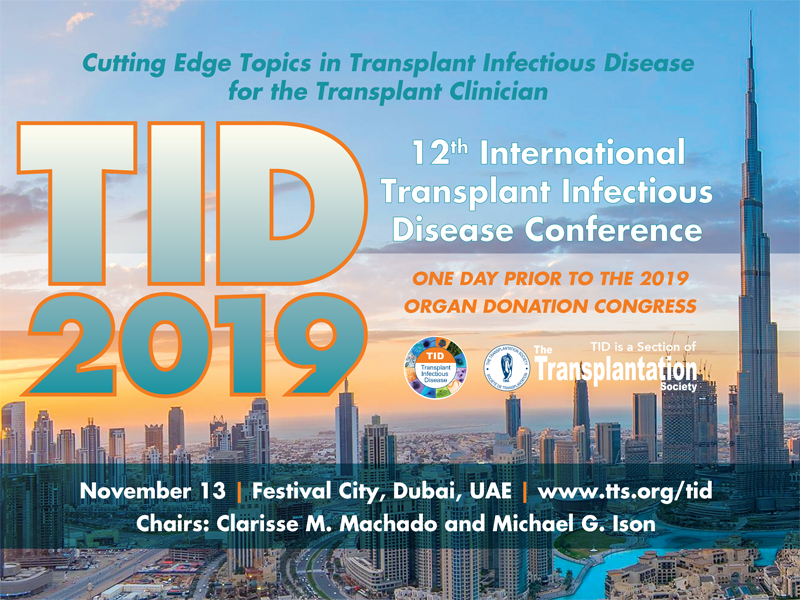
TTS COUNCIL RETREAT - MARCH 26
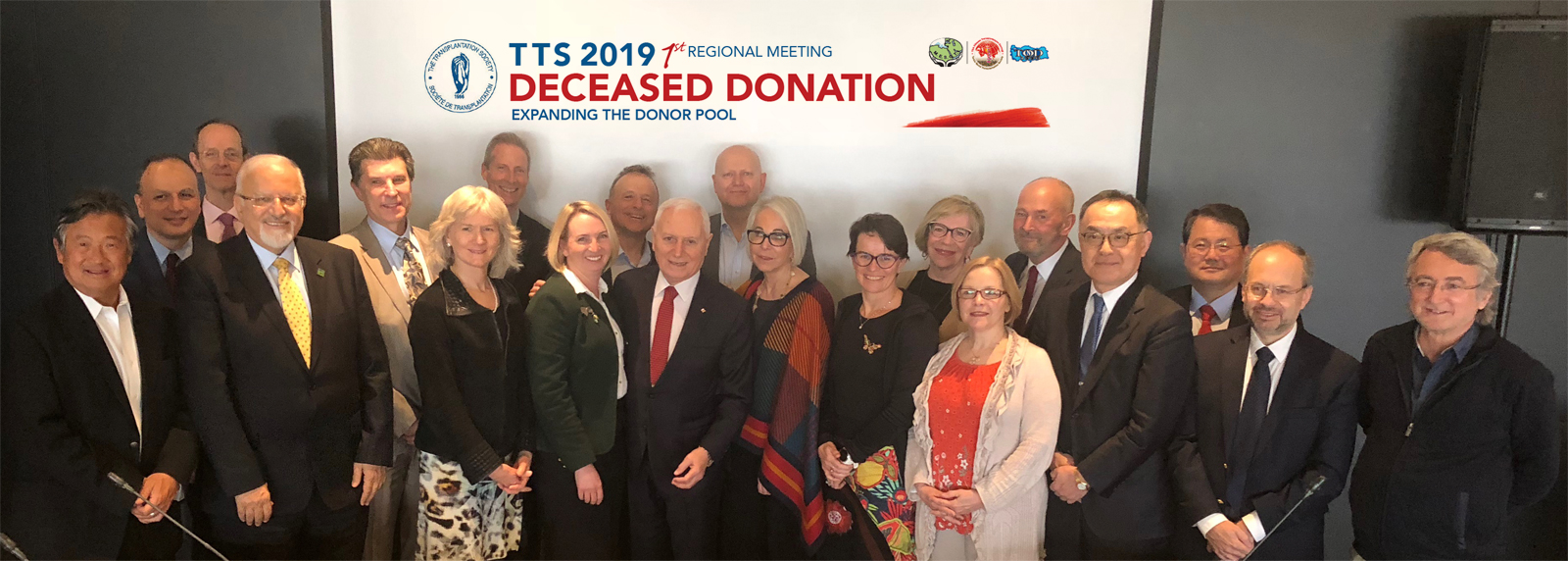
The TTS Council held a strategic retreat the day prior to the TTS 1st Regional Meeting in Istanbul, Turkey. Many topics were discussed as well as the adoption of a new strategic plan. The full report will be available in the next issue of the quarterly published Tribune. We would like to thank all the councilors and committee representatives for devoting their time and energy to further the goals of the society on behalf of our membership. We would like to extend a special thanks to our President, Professor Haberal, for his warm hospitality in welcoming our leadership to Istanbul.
Just Released - Transplantation - April Issue
This issue contains an important International Liver Transplantation Society consensus on treating hepatitis C virus as well as an overview of the microbiome in Liver transplantation; Lung transplantation has a series of papers covering everything from donor selection through to the various infection risks; a wonderful overview from the Boston team on the lessons from Mixed allogeneic Chimerism in their nonhuman primate work is complemented by a number of experimental biology studies and a great review of epithelial-to-mesenchymal transition in renal allografts; Clinical papers exort exercise, good blood pressure and pulse pressure, medication adherence and where not to put clinical Islet transplants, all with new twists.
CLICK HERE TO ACCESS THIS ISSUE
TTS MEMBERS - CLICK HERE TO SIGN-IN FOR OPEN ACCESS THROUGH TTS.ORG
THE TTS 2019 1ST REGIONAL MEETING IS WELL UNDERWAY!
 (from left to right: Jeremy Chapman, Nancy Ascher, Mehmet Haberal, Marcelo Cantarovich, Stefan Tullius and Mrs Chapman)
(from left to right: Jeremy Chapman, Nancy Ascher, Mehmet Haberal, Marcelo Cantarovich, Stefan Tullius and Mrs Chapman)
Having over 350 participants attending the 1st TTS Regional Meeting has been a great opportunity for our society to help promote deceased donation in the Middle East. We will be publishing the highlights of the meeting in upcoming issues of the Tribune Pulse as well as the upcoming quarterly Tribune newsletter.

 (pictured from left to right: Alex Capron, Mehmet Haberal, Dominique Martin)
(pictured from left to right: Alex Capron, Mehmet Haberal, Dominique Martin)
IPTA 2019 - MAY 4-7, 2019 - VANCOUVER, CANADA
The International Pediatric Transplant Association has put together an amazing program for their upcoming meeting in early May featuring world-renowned speakers. Please visit the website www.ipta2019.org for full details. Vancouver is a beautiful and unique destination and we hope that as many TTS and Section members will participate in this important meeting.
Standard Registration Deadline is April 1, 2019

TRANSPLANTATION DIRECT - HIGHLIGHTED ARTICLE
Dr. Peri Husen, Editorial Fellow, Transplantation
SUPERIOR OUTCOMES AND REDUCED WAIT TIMES IN PEDIATRIC RECIPIENTS OF LIVING DONOR LIVER TRANSPLANTATION
Kehar M, Parekh RS, Stunguris J, et al
Transplantation Direct: March 2019 - Volume 5 - Issue 3 - p e430
In this article, Kehar and coworkers aim to compare outcomes of pediatric liver transplant recipients who either received living donor liver transplantation (LDLT) or deceased donor liver transplantation (DDLT) at the largest pediatric liver transplant program in Canada. When comparing both groups (LDLT n=135 vs. DDLT n=158), the authors found that LDLT recipients were less likely to require dialysis prior to transplant, and had shorter waiting times while listed. These positive findings were also reflected by more favorable patient and graft survival rates in comparison to DDLT recipients. The authors conclude, that LDLT itself is a lifesaving therapeutic option for children with end-stage liver disease and other selected pediatric liver conditions, and that there is an opportunity to use LDLT more widely by pediatric transplant programs.
IN THE NEWS
In world first, HIV-positive woman donates kidney to HIV-positive recipient
March 28 - An Atlanta woman became the first living HIV-positive kidney donor in the world on Monday when surgeons at Johns Hopkins Medicine in Baltimore transferred her organ to a recipient who is also HIV-positive, according to a statement from the medical center. Both the donor and the recipient, who wishes to remain anonymous, are doing well.
Dr Meri Huch of the Gurdon Institute explores liver's regenerative power using organoids

Meri Huch at the Gurdon Institute in Cambridge. Picture: Keith Heppell
March 21 - The human liver is a truly remarkable organ. Like a salamander, which can regrow its limbs, our liver has a tremendous ability to regenerate. “You can remove 70 per cent and the remaining tissue will regrow to compensate for the lost volume,” Dr Meritxell Huch tells the Cambridge Independent. Her lab at the Wellcome/Cancer Research UK Gurdon Institute in Cambridge is interested in understanding this extraordinary power.
UK - Transplant service at 'breaking point'
March 24 - A leading transplant surgeon says that services are struggling to keep up with demand.
Core Investigator Group formed for Kidney Transplant Advanced Diagnostic Program
March 22 - The announcement of the formation of the core investigator group to support clinical and regulatory pathways for a portfolio of advanced diagnostic and prognostic solutions in kidney transplant known collectively as FractalDx. Investigators include Philip O'Connell, Christian P. Larsen, Barbara Murphy, Peter Nickerson and Weijia Zhang.
Visualizing better cancer treatment: Researchers engineer a protein micelle that can be visualized by MRI as it delivers hemotherapeutics
March 20 - Researchers have engineered nanoscale protein micelles capable of both delivering chemotherapeutic drugs and of being tracked by MRI. The innovation allows researchers to administer therapy while noninvasively monitoring the therapeutic progress and drastically reducing the need for surgical intervention. They biosynthesized a protein block copolymer containing amino acid building blocks with fluorinated thermoresponsive assembled protein (F-TRAP), which assembles into a nanoscale micelle with the noteworthy abilities.
New material will allow abandoning bone marrow transplantation

March 19 - Scientists from the National University of Science and Technology "MISIS" developed nanomaterial, which will be able to rstore the internal structure of bones damaged due to osteoporosis and osteomyelitis. A special bioactive coating of the material helped to increase the rate of division of bone cells by 3 times. In the future, it can allow to abandon bone marrow transplantation and patients will no longer need to wait for suitable donor material. An article about the development was published in Applied Surface Science
Biologists Discover Unknown Powers in Mighty Mitochondria
March 18 - Mitochondria are most famous as sources of metabolic energy. But by splitting and combining, they can also release chemical signals to regulate cell activities, including the generation of neurons.
UPCOMING MEETINGS AND ANNOUNCEMENTS
IPITA 2019 LYON - FRANCE
Registration is open and preliminary program are both available.
2019 TTS TRANSPLANTATION SCIENCE COMMITTEE NEWS
Hold the Date - November 10-13, 2019
ITS 2019 is set for Nov. 10-13 in Clearwater Beach, Florida. Keynote speakers include Katherine High, President and Head of R&D at Spark Therapeutics, and Ronald Germain, chief of Laboratory of Immune System Biology and Lymphocyte Biology Section at the National Institute of Allergy and Infectious Diseases National Institutes of Health.
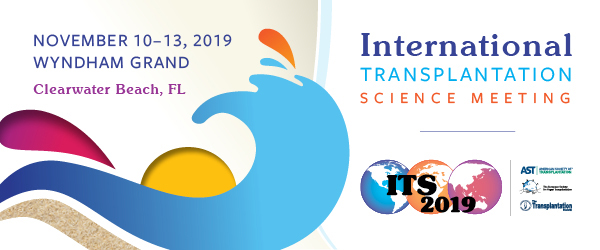
TID2019 - SAVE THE DATES!
PRE-MEETING TO ISODP 2019 - SAME VENUE ...ONE DAY PRIOR!
Contact
+1-514-874-1717
This email address is being protected from spambots. You need JavaScript enabled to view it.
Address
The Transplantation Society
International Headquarters
505 Boulevard René-Lévesque Ouest
Suite 1401
Montréal, QC, H2Z 1Y7
Canada

